
EBK ENGINEERING FUNDAMENTALS: AN INTROD
5th Edition
ISBN: 9780100543409
Author: MOAVENI
Publisher: YUZU
expand_more
expand_more
format_list_bulleted
Concept explainers
Question
Chapter 17.1, Problem 5BYG
To determine
Find the major chemical components of the Earth.
Expert Solution & Answer
Want to see the full answer?
Check out a sample textbook solution
Students have asked these similar questions
Please solve the question by hand with a detailed explanation of the steps.
Given the properties of the wide flange:
Property
Value
d = 530 mm
bf = 210 mm
tw = 18 mm
tf = 16 mm
Compute the value of rt defined as the radius of gyration of compression flange plus 1/3 of the compression web area about y-axis.correct answer: (50.52 mm)
Using a relevant image such as a 3D architectural rendering of a warehouse landscape in Edmond.
Chapter 17 Solutions
EBK ENGINEERING FUNDAMENTALS: AN INTROD
Ch. 17.1 - Give examples of properties that engineers...Ch. 17.1 - Prob. 2BYGCh. 17.1 - Prob. 3BYGCh. 17.1 - Prob. 4BYGCh. 17.1 - Prob. 5BYGCh. 17.1 - Prob. BYGVCh. 17.2 - Prob. 1BYGCh. 17.2 - Prob. 2BYGCh. 17.2 - Prob. 3BYGCh. 17.2 - In your own words, explain what is meant by the...
Ch. 17.2 - Prob. 5BYGCh. 17.2 - Prob. BYGVCh. 17.3 - What is a lightweight metal?Ch. 17.3 - Prob. 2BYGCh. 17.3 - Prob. 3BYGCh. 17.3 - Prob. 4BYGCh. 17.3 - Give examples of copper use.Ch. 17.3 - VocabularyState the meaning of the following...Ch. 17.4 - What are the main ingredients of concrete?Ch. 17.4 - Why is water sprayed on newly poured concrete for...Ch. 17.4 - Prob. 3BYGCh. 17.4 - Prob. BYGVCh. 17.5 - Prob. 1BYGCh. 17.5 - Prob. 2BYGCh. 17.5 - Prob. 3BYGCh. 17.5 - Prob. 4BYGCh. 17.5 - Prob. 5BYGCh. 17.5 - Prob. 6BYGCh. 17.5 - Prob. BYGVCh. 17.6 - Prob. 1BYGCh. 17.6 - Prob. 2BYGCh. 17.6 - Prob. 3BYGCh. 17.6 - Prob. 4BYGCh. 17.6 - Prob. BYGVCh. 17 - Prob. 1PCh. 17 - Prob. 2PCh. 17 - Prob. 3PCh. 17 - Prob. 4PCh. 17 - Prob. 5PCh. 17 - Prob. 6PCh. 17 - Prob. 7PCh. 17 - Prob. 8PCh. 17 - Prob. 9PCh. 17 - Prob. 11PCh. 17 - Prob. 12PCh. 17 - Prob. 13PCh. 17 - Prob. 14PCh. 17 - Prob. 16PCh. 17 - Prob. 18PCh. 17 - Prob. 20PCh. 17 - Prob. 22PCh. 17 - Prob. 27PCh. 17 - Prob. 28PCh. 17 - Prob. 29PCh. 17 - Prob. 30PCh. 17 - Prob. 32P
Knowledge Booster
Learn more about
Need a deep-dive on the concept behind this application? Look no further. Learn more about this topic, civil-engineering and related others by exploring similar questions and additional content below.Similar questions
- A simple beam has a span of 10 m and supports a total uniformly distributed load of 12 kN/m. Properties of W 480×86: Property Value A = 10800 mm² bf = 180 mm tf = 15 mm Ix = 383.13 × 10⁶ mm⁴ tw = 12 mm d = 480 mm Questions: Calculate the maximum shear in the beam in kN. Calculate the average shear stress in the beam in MPa. Calculate the maximum shear stress in the beam in MPa. Given the properties of the wide flange: Property Value d = 530 mm bf = 210 mm tw = 18 mm tf = 16 mm Question: Compute the value of rₜ, defined as the radius of gyration of the compression flange plus 1/3 of the compression web area about the y-axis.arrow_forwardGiven an existing two-story steel structure with interior columns spaced as shown in Fig.2. The columns are spaced at 18 ft in the North-South direction and at 30 ft in the East-West direction. An interior lower-story column is to be removed by adding newsteel girder as shown in Fig. 4. The floor dead loads and the roof dead loads are 70 psfand 18 psf respectively. The floor live loads and the roof live loads are 50 psf and20 psf respectively. All existing steel materials are ASTM A36 steel (Fy=36 ksi). Newgirder is ASTM A992 steel (Fy= 50 ksi). All columns are W8x31. Use the LRFD Method.Assumptions:1- The loads given include column and beam self weights.2- Existing beam and new girder are simply supported at both ends.3- New girder top flange is laterally braced at mid span and at girder ends only.4- Columns are continuous from foundation to roof and are prevented from sway atfloor level and at roof level in both directions.5- Columns are pin supported at foundation, at floor level,…arrow_forwardFindarrow_forward
- Determine the vertical reaction at A for the beam shown and a settlement of ½" at support B. a. 45.6 k b. 41.6 k c. 42.7 k d. 40.7 karrow_forwardWhat is the horizontal reaction at A for the frame shown 4? a. 2.42 k b. 15.00 k c. 27.58 k d. 25.00 karrow_forwardDetermine the bending moment at support A for the beam shown using the slope-deflection method. Use the sign convention defined in the chapter. a. 232.9 k-ft b. -182.1 k-ft c. 182.1 k-ft d. -232.9 k-ftarrow_forward
- What is the shear and normal stresses of Point J and Point K?arrow_forwardWhat are the states of stress (magnitude and tension/compression of the normal stresses and shear stress) at Point J and Point K?arrow_forwardConsider, M people (aka pax) who want to travel by car from O to D. They all start working at D at Q (e.g., Q-8am). If a person departs at time t, assume the time needed to go from O to D is given by c(t)=A+Bx(t), where x(t) is the flow of people departing at time t [car/unit of time]. In addition, a is the penalty for being early at work (E(t) is how early the person arrived when departing at time t), and ẞ is the penalty for being late at work (L(t) is how late the person arrived when departing at time t). Assume 0 < a < 1 < ß. Further assume the departure time choice problem under the equilibrium conditions. Prove that the arrival time of people who depart when most of the M people start their trips is equal to Q.arrow_forward
- a. A b. A 3. Sketch normal depth, critical depth and the water surface profile. Assume at A and B the water is flowing at normal depth. Label and Identify all curves (i.e., M1, S2, etc.) Yn > Ye Уп Ye Уп> Ус yarrow_forward2. Design a trapezoidal ditch to carry Q = 1000 cfs. The ditch will be a lined channel, gravel bottom with sides shown below on a slope of S = 0.009. The side slopes of the 20-ft wide ditch will be 1 vertical to 3 horizontal. a) Determine the normal depth of flow (yn) using the Normal value for Manning's n. b) If freeboard requirements are 25% of the normal depth, how deep should the ditch be constructed? c) Classify the slope. T b Уп Z 1 Yn + FBarrow_forwardP15.45 WP A stainless steel pipe (Figure P15.45) with an outside diameter of 2.375 in. and a wall thickness of 0.109 in. is subjected to a bending moment M = 50 lb ft and an internal pressure of 180 psi. Determine the absolute maximum shear stress on the outer surface of the pipe. M FIGURE P15.45 Marrow_forwardarrow_back_iosSEE MORE QUESTIONSarrow_forward_ios
Recommended textbooks for you
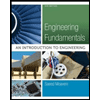 Engineering Fundamentals: An Introduction to Engi...Civil EngineeringISBN:9781305084766Author:Saeed MoaveniPublisher:Cengage Learning
Engineering Fundamentals: An Introduction to Engi...Civil EngineeringISBN:9781305084766Author:Saeed MoaveniPublisher:Cengage Learning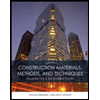 Construction Materials, Methods and Techniques (M...Civil EngineeringISBN:9781305086272Author:William P. Spence, Eva KultermannPublisher:Cengage Learning
Construction Materials, Methods and Techniques (M...Civil EngineeringISBN:9781305086272Author:William P. Spence, Eva KultermannPublisher:Cengage Learning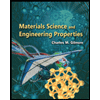 Materials Science And Engineering PropertiesCivil EngineeringISBN:9781111988609Author:Charles GilmorePublisher:Cengage Learning
Materials Science And Engineering PropertiesCivil EngineeringISBN:9781111988609Author:Charles GilmorePublisher:Cengage Learning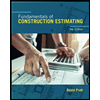 Fundamentals Of Construction EstimatingCivil EngineeringISBN:9781337399395Author:Pratt, David J.Publisher:Cengage,
Fundamentals Of Construction EstimatingCivil EngineeringISBN:9781337399395Author:Pratt, David J.Publisher:Cengage,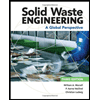 Solid Waste EngineeringCivil EngineeringISBN:9781305635203Author:Worrell, William A.Publisher:Cengage Learning,
Solid Waste EngineeringCivil EngineeringISBN:9781305635203Author:Worrell, William A.Publisher:Cengage Learning,

Engineering Fundamentals: An Introduction to Engi...
Civil Engineering
ISBN:9781305084766
Author:Saeed Moaveni
Publisher:Cengage Learning

Construction Materials, Methods and Techniques (M...
Civil Engineering
ISBN:9781305086272
Author:William P. Spence, Eva Kultermann
Publisher:Cengage Learning

Materials Science And Engineering Properties
Civil Engineering
ISBN:9781111988609
Author:Charles Gilmore
Publisher:Cengage Learning

Fundamentals Of Construction Estimating
Civil Engineering
ISBN:9781337399395
Author:Pratt, David J.
Publisher:Cengage,

Solid Waste Engineering
Civil Engineering
ISBN:9781305635203
Author:Worrell, William A.
Publisher:Cengage Learning,